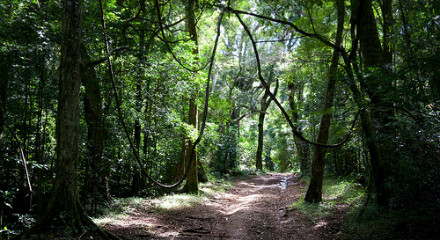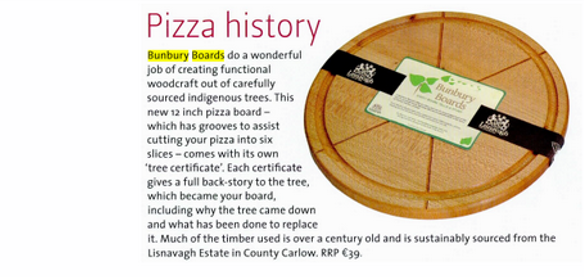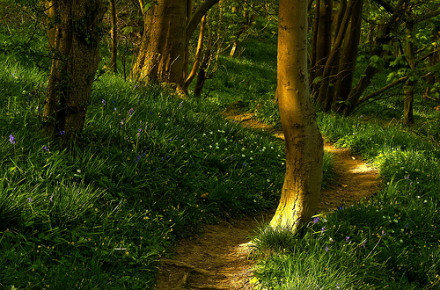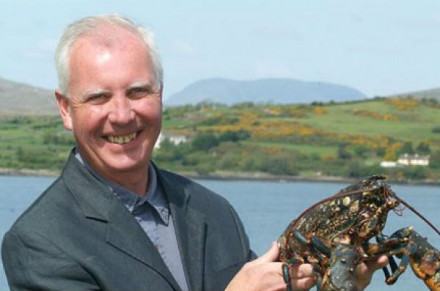The Carlow Nationalist & Leinster Times – 2nd May 2007
Rathvilly timber helping to save the forests
In the few minutes it takes you to read this page, some 64 acres of virgin tropical hardwood forest will have been lost forever.
One of our local people taking pride that all wood he provides is environmentally justified and traceable, not only down to the actual tree but to the very plank as well, is William Bunbury, whose enterprise, Lisnavagh Timber Project of Rathvilly provides such information to specialised carpenters all over Ireland who, in the main, pass on this certification to their customers.
By contrast, illegal or irresponsible logging, land clearance for agriculture and development, and fires are destroying tropical hardwood ecosystems at an alarming rate, according to the World Wildlife Fund.
A great portion of that felled hardwood, much of it untraceable to source, is likely to have found its way into the patio furniture, decking or flat-pack cup-boarding in Irish, Continental and American stores and homes.
It has been estimated that between 25% and 50% of wood imported into Ireland annually is untraceable to source – although reliable statistics are almost impossible to come by.
Lisnavagh Timber Project, on the other hand, can track and answer for every single piece of hardwood it sells. Take, for example, log number 030012.3.
Its accompanying traceability report sent with the delivery shows that it is of English Oak, indigenous to Ireland, from a tree which stood at Brickfield Plinth, Lisnavagh, County Carlow and felled on or about June 12, 2003. This oak (and there’s a photograph of it), which had stood for more than 200 years, was killed by an unprecedented arson attack on a nearby straw stack in September 2002.
It was left for another year to see if there was any chance of survival, which proved not to be the case. The same detail is recorded for every single log supplied and care is taken to ensure that felling is more than matched by groves of saplings planted.
This cannot be said of the mountains of hardwood logs streaming towards Chinese factories where they are converted into furniture and floorboards, according to an article by Peter S Goodman and Peter Finn of the Washington Post Foreign Service published on April 1.
The writers claim that these wares are shipped from China to major retailers in Europe and the United States where shoppers have little idea of the environmental costs of chopping down the trees.
The same is happening in the Congo where Greenpeace reports that corporations are offering gifts worth the equivalent of €85 to local people for permission to cut down forests worth hundreds of thousands of Euro.
The organisation warns that the Congo risks losing more than 40% of its forests in this way, with future deforestation releasing up to 34.4 billion tonnes of carbon dioxide by 2050.
While some of the major store chains do impose strict limits on the wood accepted, specifying adequate levels of replacement-planting and traceability details, it is too expensive to monitor on site that these rules are followed – and in most cases, they aren’t.
Large scale loggers continue to operate with impunity, according to an International Monetary Fund-World Bank report issued in Singapore recently.
The Chinese have clamped down on logging inside the country itself, but its huge appetite for hardwood now relies on unmonitored imports from Russia, Malaysia and Papua New Guinea, among others in the region – and much of that timber is thought to be illegal. This is denied by China but many conservation groups dispute this.
According to the World Bank, between 70% and 80% of all logging in Indonesia is illegal; in Bolivia, 80% and in Cambodia it is 90%. So what can we do?
“Demand a certificate of traceability for every piece of hardwood timber or hardwood product you buy”, William recommends. “If the vendor can’t provide it and its existence is unlikely, make a fuss, and let the salesman know the reason. The absolute ideal would be to walk away from the sale.”
“Write to the store’s Consumer Affairs Manager too. Large organisations are very sensitive to this kind of pressure.”
A good overview on the effect of illegal logging can be found on the Forest section of the World Wildlife Fund at wwf.panda.org
For more details of the Lisnavagh Timber Project check its website at www.irishwoods.com, call 059-9161784 or email info@irishwoods.com
The Timber Project is at Lisnavagh, Rathvilly – a cabre’s throw from Baltinglass.








